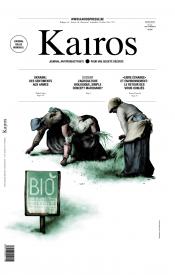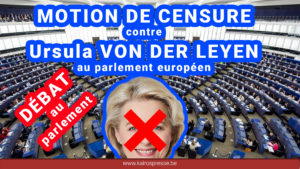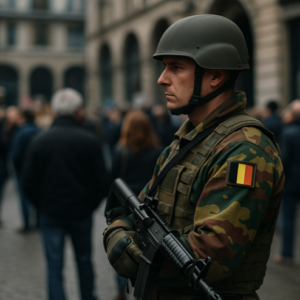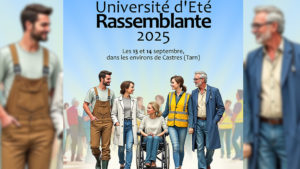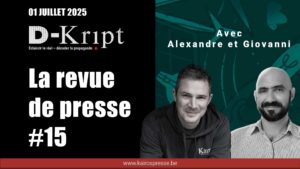En 1970, Jacques Berque publiait aux éditions Gallimard un ouvrage étonnant, L’Orient second. Dans la foulée de Mai 68, il y confrontait ses intuitions premières d’arabisant et d’islamologue au monde bouleversé qu’il avait sous les yeux. Il ne s’en vendit que quelques centaines d’exemplaires, échec qui lui fut douloureux jusqu’à la fin de sa vie car il tenait ce livre inclassable pour le plus important qu’il ait jamais écrit. Le purgatoire de L’Orient second n’est d’ailleurs pas terminé: la notice Wikipédia de Jacques Berque, au demeurant bien informée, l’ignore encore superbement. Quelques lignes trouvées, il y a bien longtemps, dans le préambule de ce livre ne m’ont pourtant jamais quitté. Les voici: «Rêver, c’est mourir peut-être, si cela veut dire lâcher pied devant les duretés de l’action et du combat. Au contraire, si cela veut dire émouvoir en soi les possibles, en appeler d’un présent inerte au rapatriement du passé et de l’avenir, c’est permettre l’action créatrice. Mais si l’alternance reste lâche? Alors, le positif et le négatif fondent dans ces limbes, envasent les contradictions, opposent à la violence des renouvellements la pente des accoutumances. »
Ce n’est pas ici le lieu d’expliquer comment ces mots ont agi sur moi, depuis plus de quarante ans, à la manière d’une huile essentielle. Et je n’évoquerai qu’en passant ce qu’ils réveillaient et libéraient dans l’esprit et le cœur des travailleurs des entreprises enfermés dans le cachot des objectifs, des ratios, des exaltations chiffrées. J’étais frappé par la façon dont ils les commentaient. Sous mes yeux, leur langage, jusque-là enserré dans une cordialité obligée, prenait du volume comme une chevelure qu’on peigne. Leurs mots s’animaient, se chargeaient de ce que Berque appelait une pesanteur légère. Par tous les aspects d’eux-mêmes, ils sortaient du labyrinthe, et si un voile de nostalgie, parfois de tristesse, enserrait leur joie, c’était que, pour une fois, on ne leur promettait pas un soleil sans ombre: ils n’avaient de choix, comme chacun de nous, qu’entre une naissance difficile et la certitude de l’asphyxie.
Mais le préambule de L’Orient second parle surtout de ce siècle déjà bien entamé. Quand Jacques Berque fait de l’entrelacement du rêve et de l’action la condition de la fécondité du premier et de la justesse de la seconde, il ne nous propose pas quelque hygiène de vie. C’est là le versant anthropologique de sa vision d’une société vivante dans laquelle le fondamental et l’historique ne cessent de dialoguer. Il se doutait des inquiétants fantasmes que ce mot fondamental allait éveiller, mais le maintenait pourtant comme la meilleure barrière contre tout fondamentalisme. Car s’il tenait pour folle une société qui se croit surplombée par quelque essence qui la terrorise, non moins folle, et comme fondamentalisée par le néant, lui paraissait une société qui, renonçant à toute référence ou à toute mémoire autre que celle de l’horreur, se confie « à de pures existences, à de pures opinions, à de pures procédures et à de purs contrats.»
Cette dialectique du fondamental et de l’historique, dont les difficultés des sociétés arabes lui avaient désigné, comme en creux, la nécessité, il souhaitait que la société occidentale s’en saisisse elle aussi. Le fondamental berquien est le contraire de l’enlisement dans le passé où échouent les réactionnaires. Il se rapporte, au-delà de l’histoire des événements, des circonstances et des défis, à l’histoire du temps long où se précise lentement, à coups d’apports différents ou contradictoires, le visage d’une société, où se compose cette sorte d’identité qui invite plus qu’elle ne contraint, qui inspire plus qu’elle ne désigne, et dont le mot arabe açâla, la spécificité mouvante, donne la meilleure idée.
Rivée à des bases que sa peur du changement l’incite constamment à durcir, une société est en danger. Mais elle l’est aussi quand sa fascination pour l’actuel et l’actualité la jettent dans le désert du non-sens. Il n’est pas difficile de reconnaître dans la première tentation celle qui a longtemps menacé les sociétés arabes, avant que d’autres, rencontrées en chemin, ne la rejoignent. Quant à la seconde, aucun des artifices que déploie la communication ne peut dissimuler à une conscience droite que nous y avons, nous Occidentaux, largement, et assez misérablement, succombé.
C’est ici que ces quelques lignes de L’Orient second prennent tout leur sens, c’est ici qu’elles nous sont un élixir de vigueur. Il existe en effet une correspondance vivante entre, d’une part, une conscience personnelle qui refuse de faire du rêve une sorte de décoration de l’action ou de l’action une copie étriquée du rêve et, d’autre part, une société qui ne cesse de mûrir au creux d’elle-même les réponses qu’elle donnera au présent pour le nourrir et s’en nourrir. La personne n’a à demander à la société ni le sens de son existence ni ses raisons de vivre, mais elle ne peut non plus se contenter d’organiser ou de développer cette société comme si ce qui l’animait en son fond était sans rapport avec ce qui la constitue elle-même.
Cercle vertueux, ronde du sens: une société qui ne renonce pas à son açâla, à sa spécificité mouvante, et un être humain qui refuse de dissocier en lui les puissances du rêve et les exigences de l’action, c’est tout un. Et cela, déjà, est une leçon: plus que de leur ingéniosité négociatrice et bricoleuse, les plus profondes transformations de la société naissent de l’intérieur des êtres. Dans cette ronde du sens, c’est toujours la personne qui invite la société à danser, jamais le contraire: s’il en est autrement, le drame n’est pas loin. Le mouvement par lequel une société retrouve ses sources et ses points d’appui, les épouse ou les ré-épouse, ne naît ni des conjectures ourdies dans les cerveaux ni des conjonctures imposées par le poids des choses: il naît de la parole libre. On appellera expression le surgissement de la personne qui, affrontée à une situation donnée, mobilise en elle-même les ressources de sens et d’authenticité qui lui permettent d’y faire face sans se trahir ni la trahir, sans se mutiler ni la mutiler, et qui tire de cette expérience un approfondissement de sa parole. C’est en ce sens que Jacques Berque invitait à organiser l’expression. Mais il employait une formule plus précise : « Il faut, écrivait-il, organiser l’expression et la déstabilisation. »
Déstabiliser quoi? Ce que Fourier appelait les ciments pétrifiés, ces liens avec la nature, ou le monde, ou les autres, qui, d’abord utiles d’une manière ou d’une autre, sont devenus des barrières et des verrous. N’est-il pas évident que, de tels ciments pétrifiés, les noces stérilisantes de l’argent et de la technique en ont créé, et en créent, plus qu’aucune société ne l’a jamais fait? N’est-il pas évident que cette pétrification, en dépit de la constante agitation verbale qui voudrait la faire oublier, s’est étendue à la culture, paralyse les relations sociales, s’en prend aux intimités? N’est-il pas évident que la pusillanimité des politiques ne fait que la justifier et l’aggraver? N’est-il pas évident que la propagande a porté la bataille au cœur même des consciences? N’est-il pas évident que c’est sur ce terrain que nous devons nous défendre et contre-attaquer, c’est-à-dire faire sauter les ciments pétrifiés et rouvrir les chemins de la vie ? Non à tous les slogans. Place à la parole, par qui tout commence, par qui tout continue de commencer.
Jean Sur
(js.resurgences.pagesperso-orange.fr)

